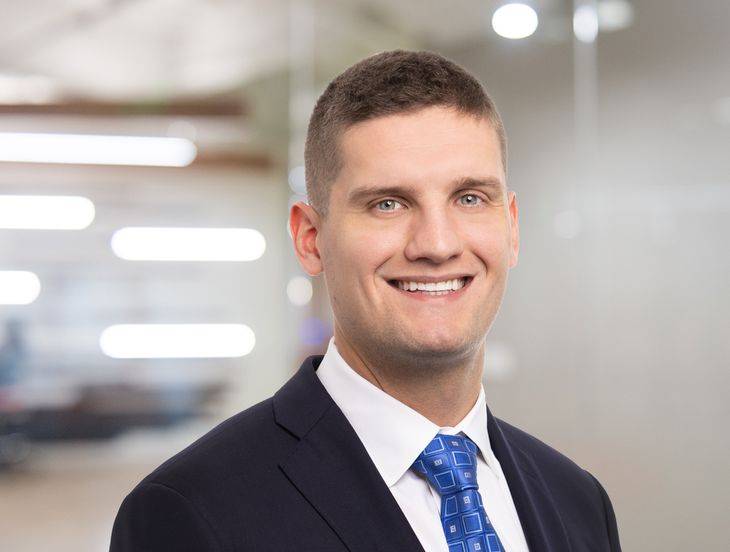The Final Buzzer on NLRB Push for Student-Athlete “Employee” Status: Everything Your School Needs to Know
Insights
1.28.25
The battle over whether student-athletes are employees under federal labor law is over – for now. A National Labor Relations Board administrative law judge just dismissed a complaint against the University of Southern California (USC), its former athletic conference, and the NCAA, based on an unfair labor practice charge filed by a fledgling players’ union, which alleged that the three entities committed violations as “joint employers” of the school’s football and basketball athletes. Yesterday’s dismissal comes after the National College Players Association (NCPA) requested to withdraw its own charge. What happened? We’ll explain it all and give your athletic department what it needs to know about the future of student-athlete employee status.
How’d We Get Here?
The fight over whether student-athletes should be classified as employees began in 2015 when Northwestern University’s football team unsuccessfully tried to unionize. But the broader debate began generating more attention in 2021 after:
- the NCAA adopted an interim policy permitting athletes to profit off their name, image, and likeness (NIL); and
- NLRB General Counsel Jennifer Abruzzo issued a memo declaring her stance that student-athletes meet the standards for “statutory employees” and indicated her intent to challenge schools, conferences, and the NCAA regarding employee status and misclassification.
In February 2022, the NCPA filed an unfair labor practice (ULP) charge against Southern California, alleging that USC, its former athletic conference, and the NCAA all jointly employ the university’s student-athletes and thus are jointly liable for any alleged labor law violations. After a lengthy investigation into those charges, the NLRB filed a formal complaint, alleging that:
- USC’s football and men’s and women’s basketball athletes are “statutory employees;”
- the various rules imposed on college athletes violated their alleged right to “engage in protected unconcerted activity;” and
- merely referring to the athletes as “student-athletes” is an independent violation of the NLRA in that the term “student-athlete” is allegedly used to deprive the athletes of their labor law rights.
More Background: Last year, the Dartmouth College men’s basketball program became the first college athletics program to unionize after an NLRB Regional Director ruled that the student-athletes were “employees” of the college and the team voted to join a union. However, the victory was short-lived as the team withdrew its petition to unionize on December 31, likely to avoid giving the incoming GOP-controlled NLRB an opportunity to reverse the Regional Director’s decision.
What’s the Latest?
The NCPA filed a formal request to withdraw its ULP charge against USC, its former athletic conference, and the NCAA, and yesterday an NLRB administrative law judge dismissed the complaint stemming from that charge.
Why Did the NCPA Seek Dismissal of Its Own Complaint?
In its Jan. 10 filing, the NCPA pointed to several developments in college athletics that have unfolded since it filed the ULP charge, including that:
- five states, including California, have passed NIL laws permitting schools to directly compensate their athletes for NIL and prohibit the NCAA and conferences from levying penalties and punishments; and
- the NCAA and power conferences filed a preliminary settlement agreement in House v. NCAA that would allow universities to directly compensate the athletes.
The motion stated that these events serve as “powerful catalysts” for schools to “fairly” compensate their football and basketball athletes.
The dismissal comes amid major personnel changes at the Board. Last week, President Trump appointed Marvin Kaplan as Chair. Kaplan is the only Republican on the Board but will likely be joined in the coming months by two additional Republican members, giving control of the Board back to Republicans for the first time since 2021. Yesterday, President Trump fired NLRB General Counsel Jennifer Abruzzo. While Abruzzo’s termination was widely anticipated, she was a strong proponent of “employee” status for student-athletes during her three-and-a-half years on the job.
What’s Next?
This marks the end of the road for the student-athlete cases pending before the NLRB, but the issue is far from settled. Other challenges to the NCAA’s traditional amateurism model, such as the federal wage claims in Johnson v. NCAA, are still playing out. We may also see further pushes towards employee status arising out of the House settlement and other anti-trust litigation, particularly as more and more student-athletes begin to receive direct compensation from their institution.
Conclusion
We will continue to monitor developments as they unfold. Make sure you are subscribed to Fisher Phillips’ Insight System to get the most up-to-date information direct to your inbox. If you have any questions on how these developments may impact your operations, please do not hesitate to contact your Fisher Phillips attorney, the authors of this Insight, or any member of our Sports Industry Group, Higher Education Team, or Labor Relations Group for additional guidance.
Related People
-
- Joshua D. Nadreau
- Regional Managing Partner and Vice Chair, Labor Relations Group
-
- Rob Dickson
- Associate

